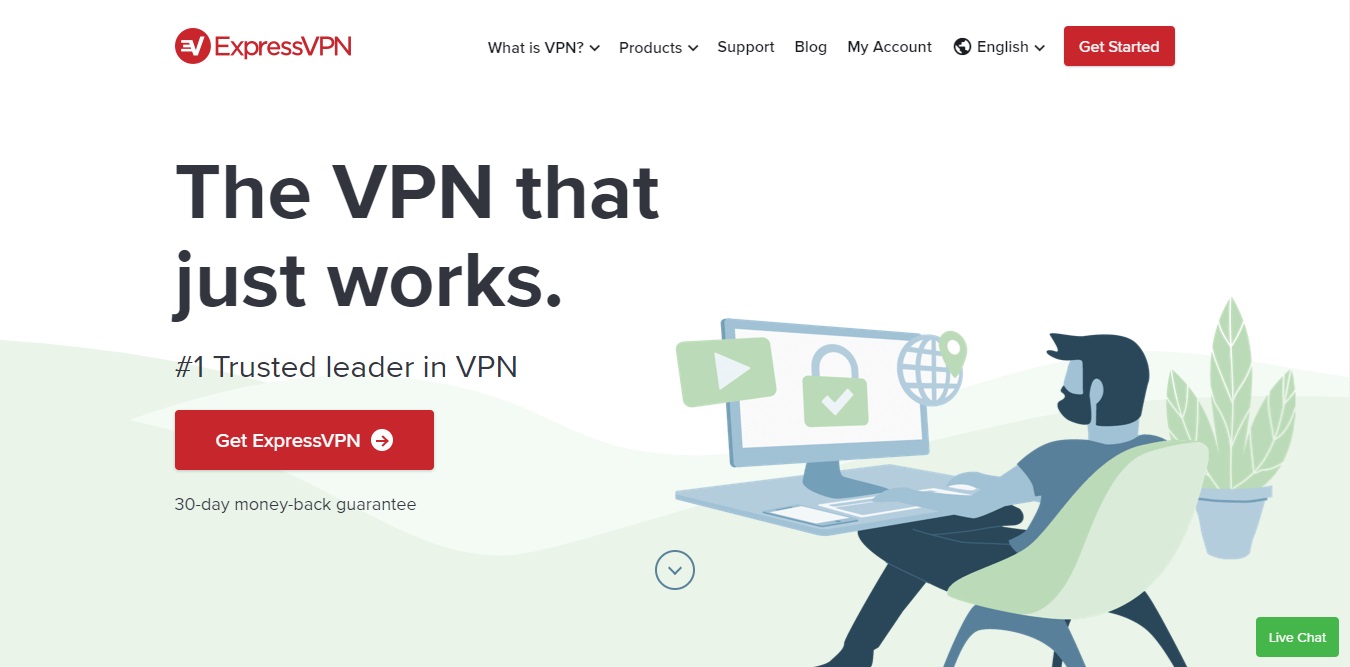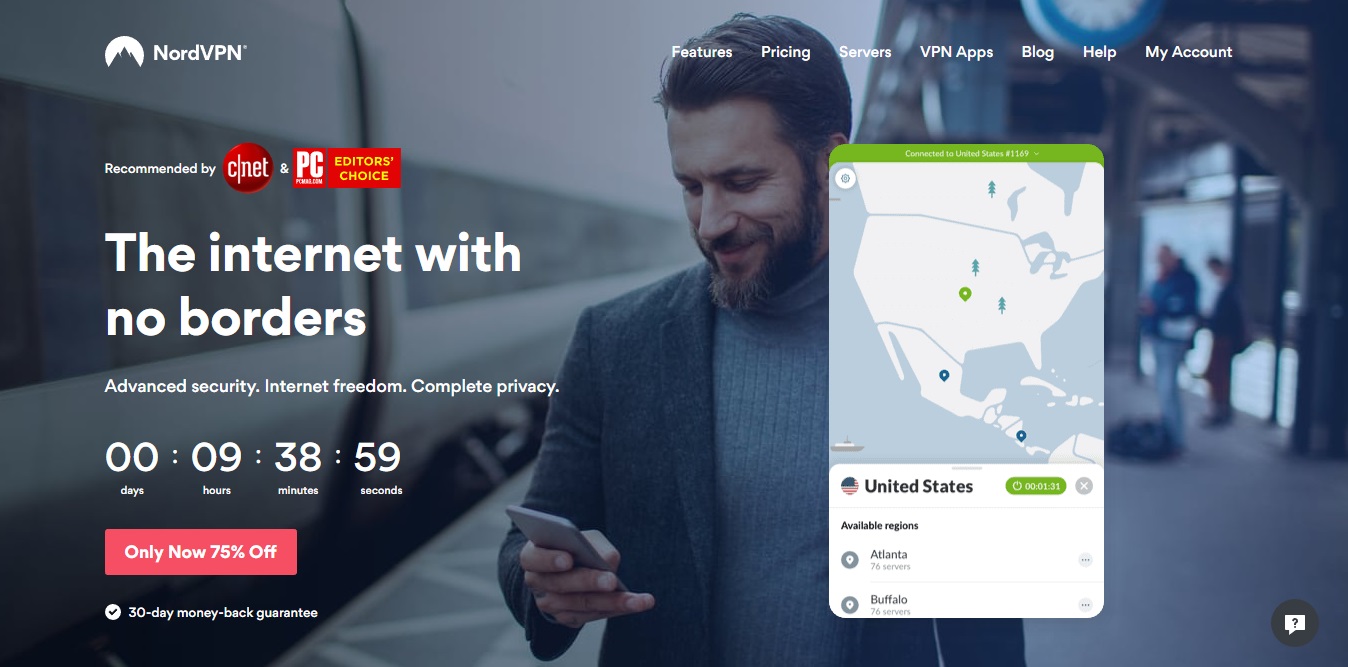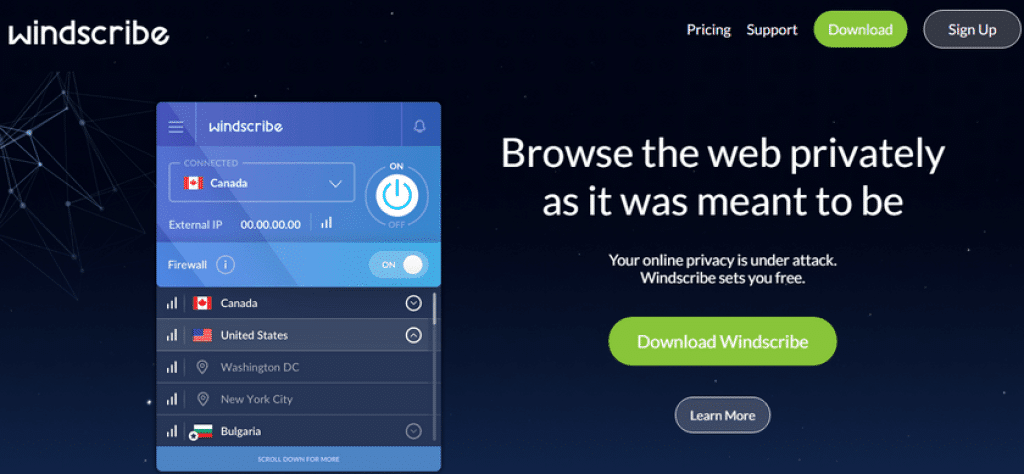Which one is the best VPN for Chromebook? Chromebook VPNs allow you to protect your internet connection and have more privacy online. Click here to see our unbiased top 5 choices for 2022.
When you use your Chromebook casually, you are leaving your privacy and security out in the open to malicious hackers and pesky ISPs. However, if you were to install a VPN for Chromebook you would be a lot safer, learn why here.
VPNs for Chromebook enable you to hide your IP address and protect your internet connection with military-grade encryption. They also can bypass different content restrictions, allowing them to watch restricted movies on Netflix, download torrents, and also get cheaper deals when you’re shopping online.
For more information about VPNs and their capabilities, read our complete VPN guide for Chromebook.
List of the 5 Best VPNs use with your Chromebook
We have done the research and found you 5 of the best VPNs for Chromebook. They will allow you to stay safe and private when you’re searching the web. Some of them will even allow you to stream, torrent, and access restricted websites.
1. ExpressVPN
ExpressVPN is one of the best VPN services in the world and offers a lot of great features for Chrome users and casual users alike. ExpressVPN has a dedicated Chrome OS extension that has a lot of great features that Chrome users will enjoy.
The extension is incredibly easy to install (in one click) and gives you access to over 160 server locations in 94 different countries. Also, ExpressVPN still works with Netflix, so you can safely unblock the platform and watch the US version with ease. The app allows you to do all the same things as the regular Windows client, including features such as a kill switch, DNS leak prevention and AES-256 encryptions (L2TP).
ExpressVPN also has an Android app that is similar to the Chrome extension but works with OpenVPN! The Android app is excellent and works flawlessly with the software.
As for other facts about ExpressVPN, the service is based in the British Virgin Islands and has 24/7 customer support. P2P is also allowed and some users will enjoy the use of their stealth servers and .onion address to bypass certain (strict) censorship.
The prices are a little pricey but the VPN is completely worse if you’re looking for a safe VPN to use on your Chromebook.
2. NordVPN
NordVPN is one of my favorite VPNs because of its enhanced security features and privacy. NordVPN has a great little Chrome OS extension that features many of the features that are present in the standard Windows app, including AES-256 encryption via the L2TP protocol.
NordVPN also has a great Android app that works perfectly and should be able to be downloaded and installed on your Chromebook with the newer updates. NordVPN have recently upgraded their client as well so that it not only is more efficient but also more animated.
As for some of the other features of NordVPN, you’d be glad to know that the service is based in Panama which is not subject to pressure from services such as the NSA, so your logs are completely safe with this VPN. Even if they were in view of the NSA they don’t keep logs anyway.
They also feature some additional features like a double-tunnel feature that channels your connection through two different VPN servers to make tracking more difficult and servers that send your connection through the Tor network when it exits the VPN network. P2P is also allowed and has a 30-day money-back guarantee.
The only issue with this service is that some servers can be slow and the support is a little “iffy”. However, this VPN is still excellent for Chromebook.
3. IPVanish
IPVanish is another frontrunner in the VPN department and has a lot of different options when it comes to adding multiple devices and diverse devices as well. In regards to Chrome, they offer a unique client that acts as an add-on to Chrome itself (an extension) and protects you from ISPs and anyone else who is trying to spy on your traffic.
The client works great and gives users the ability to channel their network to over 60 different countries. The encryption used on Chrome is AES-128, which is ok but 256-but would be preferable. As for the security protocol, you can either use L2TP or IPSec. There are also many helpful setup guides on IPVanish to help even the most beginner of VPN users.
As for some other general information about IPVanish, they offer OpenVPN security protocols on other devices and allow for P2P activity. They have a fast network, offer 24/7 customer support and allow you to connect to 10 devices from one account which is larger than most other networks. You can also try this VPN risk-free with a 7-day money-back guarantee.
4. Tunnel Bear
Tunnel Bear is the funniest and sweetest (just like Honey) VPN service on the market. Their website and client are bear-orientated with honey puns and lots of quirky animations. Even with their clients, you’re not downloading a VPN, you’re downloading a bear! Tunnel Bear is well known for the free service that they offer but the paid service is just as good.
As for their Chrome client, it is installed like an extension and is incredibly easy to use. The browser extension is great for encrypting your Chrome browser and their Android client can be used to encrypt all your other important apps.
As for other features, Tunnel Bear can be used for free with a 500MB/month limit and has fantastic speeds. They have solid encryption and allow for multiple connections from one account. The only real issue with this VPN is that they do not allow for P2P activity which may deter some users. Also, L2TP is not supported on the Chrome extension so the encryption is not the best it can be.
5. Windscribe
Windscribe is a well-known VPN and, like Tunnel Bear, it is known for the free version. Specifically, the free version allows for a massive 10GB of data a month which is more than any other VPN in the industry.
As for their Chromebook application, they do not offer a native client but do feature an extension that is easily installed and protects the browser, hiding your IP. The Chrome app also works well to block ads and social badges that further invade your privacy. As well as the Chrome extension, Windscribe also features a cool Android app as well but this only available on their Pro plans.
As for other features, Windscribe allows users to connect to 46 different countries on the Pro plan and offer OpenVPN configurations as well. Their service offers ad-blocking technology and is one of the few services to offer perfect forward secrecy.
Their firewall helps to block IPv6 and DNS leaks and act as a kill switch if the VPN fails. The firewall can also prevent WebRTC leaks, which is useful. Additionally, the VPN also supports P2P activity. The issues, however, with this VPN are in regards to the lack of L2TP security on the Chrome extension and is based in Canada which is because of the NSA.
Beginner's guide to setting up a VPN on Chromebook
Why Chromebook?

They work entirely off of what is known as Chrome OS, which gives the device a lightweight and cloud-based approach, giving people everything they need from a laptop. Recent developments in the Chrome world have also seen the addition of Android apps, which gives users even more functionality.
Chromebook is a point of interest when looking at how they function with VPNs. Many services and companies cater to Chrome OS and allow you to install the client without any problems.
In most cases, the VPN will install directly on to the browser similar to an app extension. What’s interesting is the Chrome OS works off Linux, so, as you will see later, it is possible to do a configuration to the Linux operating system to allow OpenVPN.
Differences between Clients, Extensions, and Apps
You may have noticed that some of the above options offer native clients or Chrome extensions as a way to protect you on your Chromebook. The two are a little different and work in various ways.
As well as Chrome specific apps, some Android clients can now be used on Chrome that will protect any other Android apps on the device. The consideration you need to be aware of is that the extension for Chrome only protects the browser, not the whole device.
Native Clients (L2TP/IPSec)
Using a VPN service that allows you to download a native client for your Chromebook is the most helpful. This is because the Chrome OS software has a built-in client that accepts encryptions up to L2TP/IPSec which is what is used in the majority of VPN services. This allows users to use most VPNs on their Chromebook and to install them relatively easily.
The other bonus aspect of a native VPN client for your Chromebook is that all your applications will be secured. This is because the native client will channel your entire internet connection through another server and not just the browser as a proxy would. This ensures that all your other internet applications are secured to prevent them from being intercepted.
How to setup L2TP/IPSec VPN connection on Chromebook
The configuration is simple and most VPNs have a setup guide when you’re installing a Chrome OS client. However, the process is relatively simple even if you have no technical knowledge and is very similar to Windows Method:
- You first go to your Chrome settings and navigate to the “internet connection” tab
- Once you’re here, click “Add a connection” and then “add private connection”
- A form will appear and you will have to input the server details of your VPN. Don’t worry if you don’t know these. All you have to do is contact your provider and explain that you need the server details to configure your VPN. They’ll happily assist you.
- Once you have inputted all your server details you can hit “connect” and the VPN will be good to go.
Chrome Extensions
VPN Chrome extensions are exactly what they sound like and are similar to the standard extensions you get (that appear on the top right side of the browser). However, although this may seem like an issue, to begin with, it isn’t.
This is because a Chromebook is essentially a big browser, meaning that all Chrome add-ons will operate normally on your Chromebook. However, as some of the more adept users may have figured out, a “VPN add-on” is not technically a VPN because it only secures the browser with encryption and not the whole system.
Despite this, the Chrome OS browser is the OS meaning the add-on technically can be considered a VPN. With the addition of Android applications, you can also secure any apps you download with an Android VPN. Browser add-ons do not include L2TP but instead use HTTPS or SOCKS. It is always helpful to check with the provider though.
Here is a video showing “how to set up VPN with chrome extensions”,
Android Clients
As mentioned previously, Android apps are not becoming an addition to Chromebooks to give them more functionality. This also means that you can now get Android VPNs for your Chromebook to secure the apps. The Android side of VPNs are great and some of them offer OpenVPN protocols to give you great protection. Some even have kill switches.
The main issue is that they only secure Android apps and not the whole Chrome OS system. However, you can counter this by using the two in conjunction with each other to give yourself almost complete device security.
Conclusion
Chromebooks are still a bit of a niche system that many people haven’t adopted. When you think of a Chromebook you don’t think it will have much use at first because it is a browser. However, it is a lightweight and fast way to surf the internet and provides everything you need to get work done.
Also, they are featured in many VPN service’s device lists and you can use either native client, Chrome extensions or even Android apps to secure your Chrome device. With the choices above we do not doubt that you will find a VPN that you’ll love.




